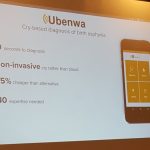The internet penetration in Africa is highly giving room for development in various sectors.Digital revolution in Africa is making the continent a tech hub. According to Nii Quaynoy, a scientist who has been important in the introduction and development of the internet throughout Africa, the continent has broken 15% barrier through internet penetration. The challenge is that Africans are not able to produce enough tools, applications, and software to offer the economy the much-needed dividend.
The use of pocket-friendly submarine connections is not even a decade old. The fruits of the new undersea fibre have already seen. The fibre led to a notable increase in data transmission capacity which quickly reduced the transmission cost and time. Currently, a total of 16 submarine cables connect Africa to Asia and Europe making international connectivity easier. According to Steve Song, founder of Village Telco, an initiative to build low-cost telephone network hardware and software leading to digital revolution.
Initially, the African researchers were isolated by the network problems, and that is now past tense. According to Meoli Kashorda, director of the Kenya Education Network, one can now get information from developed countries, and that changes the people’s way of thinking. The rate of mobile phone acquisition in Africa is higher compared to the internet penetration speed. About 22% of the population in Africa used the internet in 2016 compared to an average of 44% globally as shown by International Telecommunication Union (ITU). The number of Africans who can get 3G is at 11% the number gives the mobile operators in the continent an opportunity to give a high data-processing speed.
Those who reside in urban areas around the coastal towns where the submarine fibres are available has an opportunity of getting the digital technology in Africa. According to McKinsey & Company, a global management consulting firm, in case of Internet access reaches the same level of penetration as mobile phones. Africa’s GDP could get a boost of up to $300 billion. Access to technology will be vital for development and the closing of the income inequality void in the continent.
A study shows that the 60% richest population in sub-Saharan Africa can access internet compared to the less fortunate 40%. Population in urban areas who can access the internet are twice as many as those in rural areas, according to a report by World Bank’s World Development Report 2016. The report states that internet not evenly distributed. African Development Bank (AfDB) says that the businesses that use digital technology during their activities have a chance of creating more job opportunities and increase earnings compared to the other businesses. The bank reports that by 2021 there will be 2 million jobs created by Africa ICT department.
There is hope in the African job sector since the 60% jobless population has twice the number of youths as compared to the number of elderly. A youthful population can easily embrace the technological changes in the digital era than compared to the ageing population. Technology can also be used to bridge the gap between the schooled and those who failed to attend school. Africa has the highest number of the unschooled population compared to the rest of the world according to the UN UN Educational, Scientific and Cultural Organization. An increase in the number of the mobile acquisition facilitates e-learning process that helps in bridging the gap. IMARC Group, a market research company with offices in the UK the US, and India, reported earlier in 2017 that the e-learning market in Africa will be worth $1.4 billion by 2022.
Eneza Education that is a Kenyan based e-learning forum recorded 1 million subscribers in 2016. The platform majors on the teachers and students in rural areas where lesser opportunities are giving the services at a cheaper cost. Samsung’s Smart Schools is another initiative that gives schools around the world PCs, tablets, and other devices and helps to construct solar-powered schools in rural areas. The initiative is currently operational in 78 smart schools in ten countries. The countries include Kenya, Ethiopia, Uganda, and Ghana among others. Women are also not left behind since there is the likelihood that there is a possibility that fewer women are using internet compared to men. Organizations are coming in to help attract women into the digital world.



